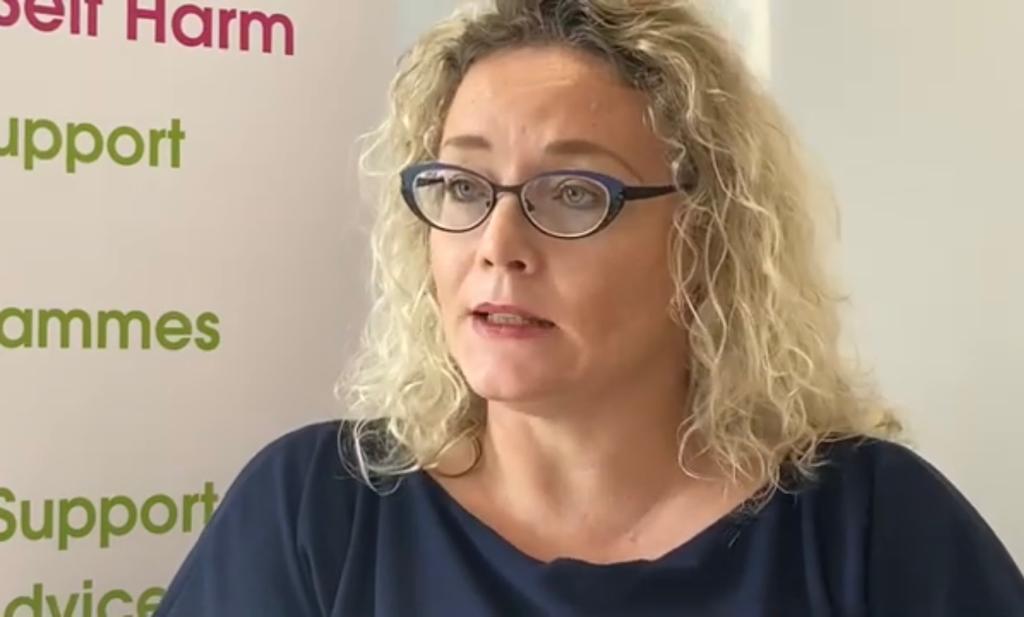SUICIDE prevention charity PIPS has welcomed the new definition in which suspected suicides are now recorded – however, it added that rates in deprived areas of Belfast should be a matter of concern for government.
Director Renee Quinn was speaking following the recent findings by Northern Ireland Statistics and Research Agency (NSIRA) also found that suicide rates have come down in the North, as deaths formerly attributed to suicide, where instead recategoraised as accidental deaths due to drugs and alcohol. Coroner Joe McCrisken examined 467 cases and 84% of these were moved into the accidental death category.
“It is really good to see the standard of what constitutes a suicide being changed from the old criminal definition of ‘beyond reasonable doubt’ to the civil definition of a ‘balance of probabilities’ as it takes away from the old stigma of suicide, and helps with our more modern understanding that suicide is not a crime,” she said.
However, Renee said she was still shocked at the findings, as they showed that Belfast still has the highest rates in the North, and that the rates in deprived areas were almost double what they were in more affluent areas.
“My only concern with these new figures is that whilst it is welcome news, seeing the suicide rate going down, it is still a real concern for us at PIPS that there is even one death from suicide, and it’s still very concerning to see Belfast having the highest rates, and seeing deprived areas of Belfast having the highest rates as well, such as in North Belfast where we are situated.
“The gap in the rates between deprived areas and non-deprived areas should be raising flags with government officials that there is more to be done to tackle the root problems in these areas that can lead to suicide, such as poverty and job insecurity. They have the findings now to prove it, but all we need now is the money and the willpower to tackle these issues instead of just reporting on them.”
The PIPS Director also said some questions could be raised now about what constituted a suicide, and stated there is some concern now that suicides involving either alcohol or drugs will now instead be ruled as accidental, and give a false image of the actual rate.
“My concern is will situations like this now go down as a drug or a drink related death, and not as a suicide. There could be some cynical questions raised about whether this is to bring the figures down, and I would worry that it could hide the scale of the issue if suicides are to be reclassified as being caused by drugs or alcohol.
"However, I would not want to criticise their work, they’re working to bring our methods more into line with the rest of the UK to make it more measurable, but unless someone leaves a note behind, and most people don’t, then I would worry that a suicide that involved drugs or alcohol would instead just get reported as an accidental death from substances.”
Renee stressed that more needs to be done to tackle suicide in Belfast, and throughout the North, and particularly in deprived communities, and said the best step forward in that regards was to follow what the public repeatedly ask for, which is for there to be greater accessibility for mental health services, for people when they need it, rather than having to go through GP referrals, and waiting lists.
Renee said: “Suicide is a very complex issue, and one solution won’t fix it. It’s to do with a person’s environment, housing situation, employment status, access to facilities etc. There needs to be a particular strategy for areas with high suicide rates. When you speak to people who have been affected by suicide or live in these areas, the number one thing they always say is they need accessibility to mental health support.
"With a lot of government funded mental health charities, they operate what amounts to a post-code lottery, wherein if you’re outside the catchment area of one charity, they will not see you and instead refer you to someone else. We don’t believe that is right, when people reach out for help they need it there and then.”









